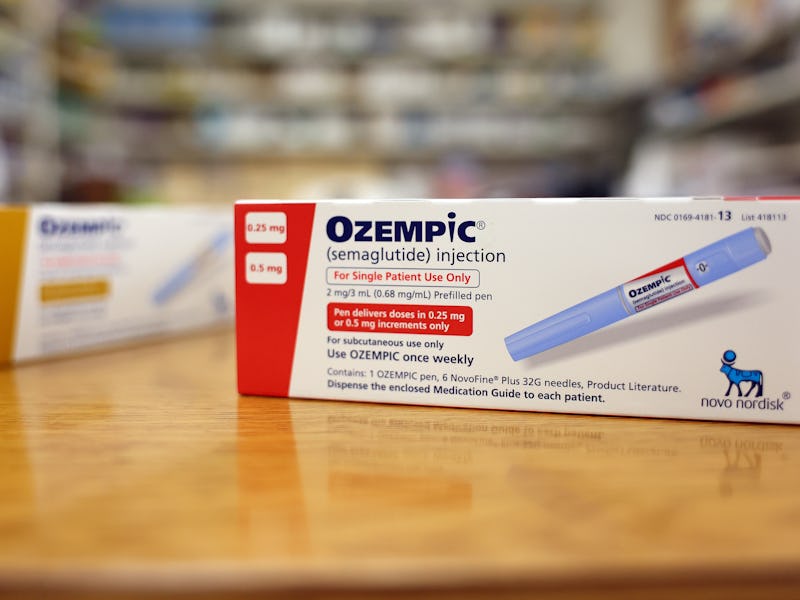Ozempic Makes Some Users Drink Less — And Scientists Might Finally Know Why
The popular weight loss drug seems to temper the release of dopamine in the brain.

The effect of Ozempic and its sister drugs continues to confound users and researchers alike. The medications, which include Ozempic, Wegovy, and Mounjaro, have been around since 2017, but have exploded in popularity over the past couple of years. The drugs, which belong to a class of medications called semaglutides, were originally designed and tested for Type 2 diabetes. Now, at least one has been approved for obesity, and as more users put the drugs to the test, researchers are finding ever-increasing ways they influence our bodies.
There is a growing body of research showing that these medications seem to make people lose interest in long-term habits like drinking and smoking. But scientists have yet to pin down why this is the case. This week, NPR reported that scientists believe these drugs seem to temper the release of dopamine in the brain.
A number of animal studies have also demonstrated this effect. One paper published in July found that rats who received semaglutide injections lost weight and also imbibed less alcohol. Another rat study from 2020 found similar results. Liraglutide, which belongs to the same drug class as semaglutide and has a similar effect, also curbed appetite for food as well as nicotine in rats, according to a June 2023 study published in the journal Psychopharmacology. Studies from 2013 and 2022 also show these drugs attenuate the use of drugs like heroin and cocaine.
The active ingredient in Ozempic — and its relatives, such as Wegovy and Mounjaro — is semaglutide, which belongs to a class of drugs called glucagon-like peptide-1 receptor agonists (GLP-1R). These drugs mimic a naturally occurring hormone called glucagon-like peptide 1, or GLP-1 for short. Our guts produce this hormone after we eat, and it generates a slew of reactions that slow appetite and trigger the release of insulin, which regulates blood sugar levels following a meal.
But semaglutides don’t just affect the gut. When we eat or drink something tasty, our brain releases dopamine, which is related to motivation and reward-seeking behavior. It’s the reason why you might get another slice of cake or another glass of wine when you intend to have just one. A 2020 study in the journal Frontiers in Behavioral Neuroscience found that GLP-1 reined in this reward-seeking behavior when users ate or drank less. In other words, it inhibits the mechanism that encourages addictive behavior.
“All these reports, for the most part, are anecdotal,” Christian Hendershot, a psychologist and addiction researcher at the University of North Carolina, told NPR. “At the same time, it does seem like there's a pretty strong signal here.”
This article was originally published on